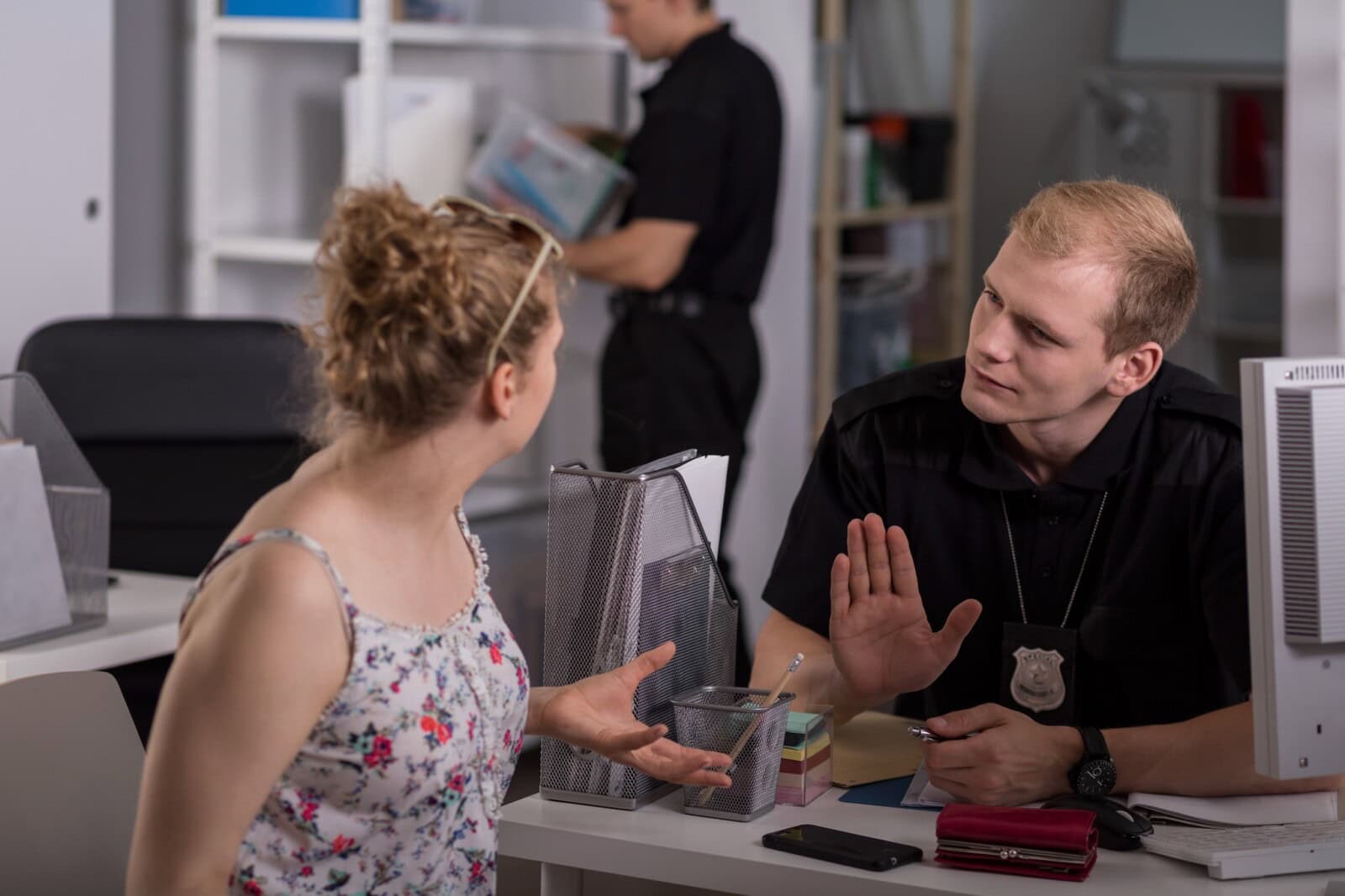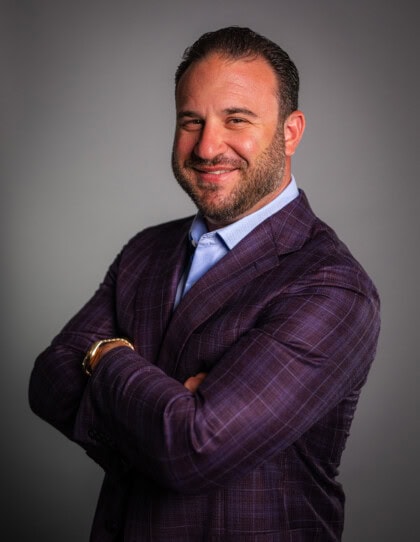Many people believe an informal chat with law enforcement can't harm them, especially if they haven't been arrested or formally charged. They might think they're just "clearing things up" or having a casual conversation with officers. However, this common misconception can lead to serious legal consequences.
A "voluntary interview" in Florida often means police want to gather information without formally arresting someone, allowing them to bypass certain legal requirements. It's a strategic move on their part, and individuals need to understand the nuances of these interactions to protect their rights and interests.

Understanding the "Voluntary Interview" in Florida Law
When police ask to speak with you, they might label it a "voluntary interview," which sounds harmless and informal. However, from a legal perspective in Florida, this is a distinct investigative step that carries significant implications. It differs significantly from a formal interrogation that occurs once someone is in custody.
What "Voluntary" Really Means to Law Enforcement
From a police perspective, a "voluntary" interview means they're speaking with someone who isn't under arrest and is ostensibly free to leave. This allows officers to conduct their investigation without the immediate need for a warrant or the formal procedures that accompany an arrest. It provides a tactical advantage for law enforcement.
Police sometimes delay an arrest and question an individual first to circumvent their duty to give Miranda warnings, believing people are more likely to give voluntary statements without them. This approach serves their investigative goals by allowing them to gather information, assess a person's demeanor, and potentially build a case before any formal charges are filed. They aim to obtain information that can later be used to strengthen their position, even if you feel you're simply cooperating.
The Lack of Miranda Warnings
A critical aspect of a "voluntary" interview is the absence of Miranda warnings. These warnings, which inform individuals of their right to remain silent and right to an attorney, are typically only required when a person is "in custody" and being interrogated. Since you aren't formally arrested during a voluntary interview, police aren't obligated to read you these rights.
The lack of Miranda warnings has profound implications for anyone speaking with the police. Anything you say, even before an arrest, can still be used against you in court. This means that seemingly innocent comments or attempts to explain a situation can inadvertently provide prosecutors with evidence to use in a potential criminal case. It's a dangerous trap for those who don't understand the legal distinctions.
The Hidden Dangers of Talking to Police "Off the Record"
Many people mistakenly believe conversations with law enforcement can be "off the record," especially if they feel they're just being helpful. This idea is a myth, however, and informal chats with officers carry significant risks. Every word, gesture, and silence can become part of a formal investigation.
How Casual Chats Become Formal Evidence
Every word, gesture, and silence during a voluntary interview can be recorded, interpreted, and later used as evidence by law enforcement. Police officers are trained to observe and document every aspect of an interaction. Regardless of your intent, what you say can be twisted, misunderstood, or used to build a comprehensive case against you. Even seemingly innocent comments or attempts to explain a situation can inadvertently provide prosecutors with evidence to use in a potential criminal case, all before formal charges are even filed.
Everything you say during a voluntary interview can still be used as evidence, even though you aren't under arrest, and the interview is often recorded with legal weight. The police are actively gathering information, even before charging you, to build a robust case against you.
Inadvertently Waiving Your Rights
Engaging in a voluntary interview without legal counsel can lead individuals to unknowingly waive their constitutionally protected rights. You have the right to remain silent and the right to an attorney, but if you speak freely without asserting these rights, you might lose the chance to use them effectively later. This can happen without any explicit declaration on your part.
The long-term consequences of such waivers can severely impact a potential criminal case. Once you provide information, it becomes part of the record, and it can be difficult to retract or explain away later. An attorney can ensure your rights are protected from the very beginning.
The Art of Police Questioning Tactics
Police officers are highly trained investigators whose primary goal is to gather information and build a case, not to offer legal advice or act as a neutral party. During these "voluntary" conversations, they might use various psychological tactics. These can include feigned empathy, where an officer pretends to be on your side, or leading questions designed to elicit specific responses.
Officers might also offer false assurances or imply that cooperation will lead to leniency, even though they don't have the authority to make plea deals. Only prosecutors can reduce charges, so you could end up confessing and still face the harshest possible penalties. They might claim they found fingerprints, have video footage, or that someone picked you out of a lineup, even when none of that is true. Police can use deceptive tactics during interrogations in Florida, including lying about evidence or making false promises of leniency. They might also employ the "good cop/bad cop" routine, where one officer acts aggressively while another appears sympathetic, to make you more comfortable speaking with the "good" one, hoping you'll confess. Common interrogation tactics include pretending to have evidence, offering leniency, lying about what others have said, and lengthy or repetitive questioning.
How a Voluntary Interview Builds a Pre-Charge Case Against You
Police requests for "voluntary interviews" are a strategic tool aimed at gathering evidence and constructing a case against an individual before formal charges are even filed in Florida. This pre-charge phase is important because it's when the foundation of a potential prosecution is often laid.
Gathering Incriminating Information
Police use these interviews to elicit confessions, obtain inconsistent statements, or gather details that can be corroborated with other evidence they possess. They're looking for any information that can help them establish intent, motive, or guilt. Even seemingly minor details provided during the conversation can later be used by the prosecution to strengthen their case.
A voluntary police interview doesn't necessarily signal a lack of evidence. It might mean the police are still gathering additional details or giving you a chance to explain yourself before deciding on formal charges. Your statements can fill in gaps in their investigation, turning suspicions into concrete evidence. For example, imagine a situation where someone innocently describes their whereabouts at a specific time. Police might then compare this statement to surveillance footage or witness testimony. Even a slight discrepancy, or a nervous demeanor during the explanation, can be logged and later used by a prosecutor to suggest deception or guilt, transforming an "explanation" into incriminating evidence.
Assessing Credibility and Demeanor
Beyond specific statements, officers also observe the individual's demeanor, body language, and the consistency of their story during these "voluntary" interviews. They're trained to look for signs of deception, nervousness, or evasiveness. These observations aren't just casual notes.
Such observations can be documented and later presented by prosecutors to influence a jury's perception of guilt. Even if no direct confession is made, a prosecutor might argue that an individual's nervous behavior or inconsistent retelling of events suggests guilt. This can significantly sway how a jury views your character and credibility.
Corroborating Evidence and Developing Leads
Statements made during a voluntary interview can be valuable for investigators in several ways. They can provide new leads that direct police to physical evidence they hadn't discovered yet. The information you provide might also help them corroborate existing information from other sources, such as witnesses or surveillance footage.
This process strengthens the prosecutor's position considerably. When statements from an interview align with other evidence, it creates a more robust case. This can lead to more severe charges or make it harder for a defense attorney to challenge the prosecution's narrative effectively.
Your Fundamental Rights During Police Contact in Florida
Understanding your constitutional rights is paramount when interacting with law enforcement in Florida. These rights are designed to protect you, and unequivocally asserting them during any police encounter or questioning is important. Knowing what you can and cannot do can make a significant difference in the outcome of an investigation.
The Right to Remain Silent (Fifth Amendment)
The Fifth Amendment grants you the right to remain silent, and this applies even if you aren't formally arrested. You don't have to answer police questions if you don't want to. To clearly and unequivocally invoke this right, you should state it aloud, for example, by saying, "I wish to remain silent."
The legal implications of doing so are significant. If you properly assert your right to silence, your silence cannot generally be used against you in court as an admission of guilt. In 1965, the US Supreme Court ruled that a jury cannot infer guilt simply because the defendant invoked the Fifth Amendment and refused to testify. Under Florida law, any interrogation that takes place without you being informed of your rights can lead to the suppression of your statements.
The Right to an Attorney (Sixth Amendment)
The Sixth Amendment secures your right to legal counsel. This right applies not just in court, but also during police questioning. Invoking this right immediately by stating, "I want to speak with an attorney," is one of the most crucial steps you can take to protect yourself from self-incrimination. Once you request an attorney, the police must cease questioning you until your lawyer is present.
An attorney acts as a buffer between you and law enforcement, ensuring your rights are respected and that you don't inadvertently harm your case. They can advise you on the best course of action and speak on your behalf, preventing you from making statements that could be used against you.
No Obligation to Consent to Searches
The Fourth Amendment protects you against unreasonable searches and seizures. This means you aren't obligated to consent to searches of your person, vehicle, or property without a warrant or probable cause. Police officers may ask for your consent, but you have the right to respectfully refuse. You have the right to remain silent, the right to refuse consent for searches without a warrant, and the right to have an attorney present during questioning. Understanding Florida's search and seizure laws is key.
Refusing consent doesn't imply guilt and cannot be used as evidence against you. If officers don't have a warrant or probable cause, they generally cannot search your property without your permission. Standing firm on this right helps protect your privacy and can prevent law enforcement from discovering evidence they otherwise wouldn't have found. This also applies to requests for field sobriety tests or breathalyzer tests; generally, you can refuse these.
When Police Reach Out: Recognizing the Signs and Next Steps
Police contact can be unsettling, but knowing how to identify a voluntary interview request and what immediate actions to take can protect your interests and rights in Florida. Being prepared for these interactions is your best defense.
Identifying a Voluntary Interview Request
Police might initiate contact in various ways, such as a phone call, knocking on your door, or an informal chat on the street. They often use specific language to invite a "voluntary" conversation. They might say, "We just want to clear things up," "We'd like to hear your side of the story," "You're not under arrest," or "We just have a few questions." These phrases are designed to make the interaction seem non-threatening and encourage you to speak freely.
The key indicator is that they're seeking information but haven't formally arrested you. Courts apply a reasonable person standard to determine custody, meaning whether a reasonable person in the suspect's situation would feel that they were free to leave. Several factors can contribute to a person feeling they're not free to leave, even without a formal arrest. These include the location of questioning (e.g., at the police station), the duration of the questioning, the number of officers present, and whether physical restraints were used. If you feel you aren't free to leave, you might be in custody, even if not formally told so.
Your Immediate Response: Invoking Your Rights
When confronted with a police request for a voluntary interview, your immediate response is critical. Building on your understanding of fundamental rights, you should clearly and unequivocally state, "I wish to remain silent" and "I want to speak with an attorney." It's important to be direct and polite without being confrontational. You don't need to explain why you're invoking your rights.
A simple, direct statement is sufficient. Resist the urge to explain your situation or try to convince officers of your innocence. Providing false information to law enforcement can lead to obstruction of justice charges under Florida Statutes § 843.02, so if you cannot answer truthfully, it's better to remain silent. Any information you offer, even if you believe it to be helpful, can be misinterpreted or used against you.
Do Not Consent to Searches or Field Sobriety Tests
Beyond remaining silent and requesting an attorney, you should also be aware of your right to refuse certain requests. You aren't obligated to consent to searches of your person, vehicle, or property without a warrant. You can politely decline by stating, "I do not consent to a search." If officers proceed anyway, they're doing so without your consent, which can be legally challenged later.
Similarly, you can politely decline field sobriety exercises or chemical tests in many situations. While implied consent laws apply in Florida for DUI cases, refusing these tests can have separate considerations. However, generally, you don't have to agree to them on the spot. These actions are voluntary and can often provide law enforcement with the evidence they need to build a case against you. Understanding how to navigate challenging DUI breathalyzer and field sobriety test results can be essential for your defense.
Protect Your Interests: Seek Experienced Criminal Defense Counsel
Facing police questioning or an investigation can be intimidating and confusing. The role of a skilled criminal defense attorney cannot be overstated. Legal representation safeguards an individual's rights and future in Florida, ensuring you navigate these complex situations with confidence.
Why You Need a Lawyer Before You Speak
An attorney can advise you on the potential legal ramifications of speaking with law enforcement. They act as a buffer between you and the police, ensuring that all your constitutional rights are protected throughout the process. A lawyer can assess the situation, determine if an interview is truly voluntary, or if an arrest is imminent, and counsel you on the best course of action.
Having legal counsel present before any questioning helps prevent self-incrimination and ensures that any interaction with police is conducted lawfully. They can also prevent police from using deceptive tactics that could compromise your case. Your attorney is solely focused on protecting your interests, unlike law enforcement.
Navigating the Investigation Process
A criminal defense attorney can proactively engage with law enforcement on your behalf. They can gather information about the nature of the investigation, understand what evidence the police might have, and clarify the allegations against you. This proactive approach allows for a strategic response to the investigation.
Working with an attorney can strategically help prevent charges from being filed or mitigate potential consequences should charges proceed. They can present your side of the story in a controlled manner, if appropriate, or work to negotiate with prosecutors before an arrest even occurs. This can often lead to a more favorable outcome than facing the process alone.
Already Spoken to the Police? It's Not Too Late.
If you've already had a voluntary interview with the police and shared information, it's not too late to seek legal help. An experienced criminal defense attorney can still intervene. They can review your statements, assess any potential damage, and work to understand how that information might be used against you.
Even after speaking with law enforcement, an attorney can advise you on how to proceed, communicate with investigators on your behalf, and begin building a defense strategy. They can work to mitigate the impact of any statements made and protect your rights moving forward.
Expertise in Florida Criminal Law
Choosing a lawyer with specific expertise in Florida criminal defense is critically important. State laws, local procedures, and the various strategies employed by Florida state prosecutors and law enforcement are unique. A knowledgeable attorney possesses an in-depth understanding of these nuances.
This expertise allows them to anticipate the prosecution's moves, identify weaknesses in their case, and build a strong defense tailored to Florida's legal landscape. Our team understands how police conduct investigations and how to protect your rights within the specific context of Florida law, including in areas like Fort Lauderdale. Our experience can make all the difference in safeguarding your freedom and future.
Protect Your Rights: Contact Weinstein Legal Team Today
"Voluntary interviews" with law enforcement are rarely as harmless as they seem. They're strategic tools police use to gather evidence and build a case against you, often without the requirement to inform you of your Miranda rights. Asserting your right to remain silent and your right to an attorney immediately is the most important step you can take to protect yourself.
The consequences of speaking with police without legal counsel can be severe, potentially leading to self-incrimination or an inadvertently stronger case against you. Don't take chances with your freedom and future.
If police contact you for a voluntary interview or any questioning in Florida, you should contact a lawyer right away. The experienced criminal defense team at Weinstein Legal Team is here to protect your rights and interests. Click here to schedule your free consultation with an attorney, or call us at 888.626.1108 to speak with an attorney right away.


